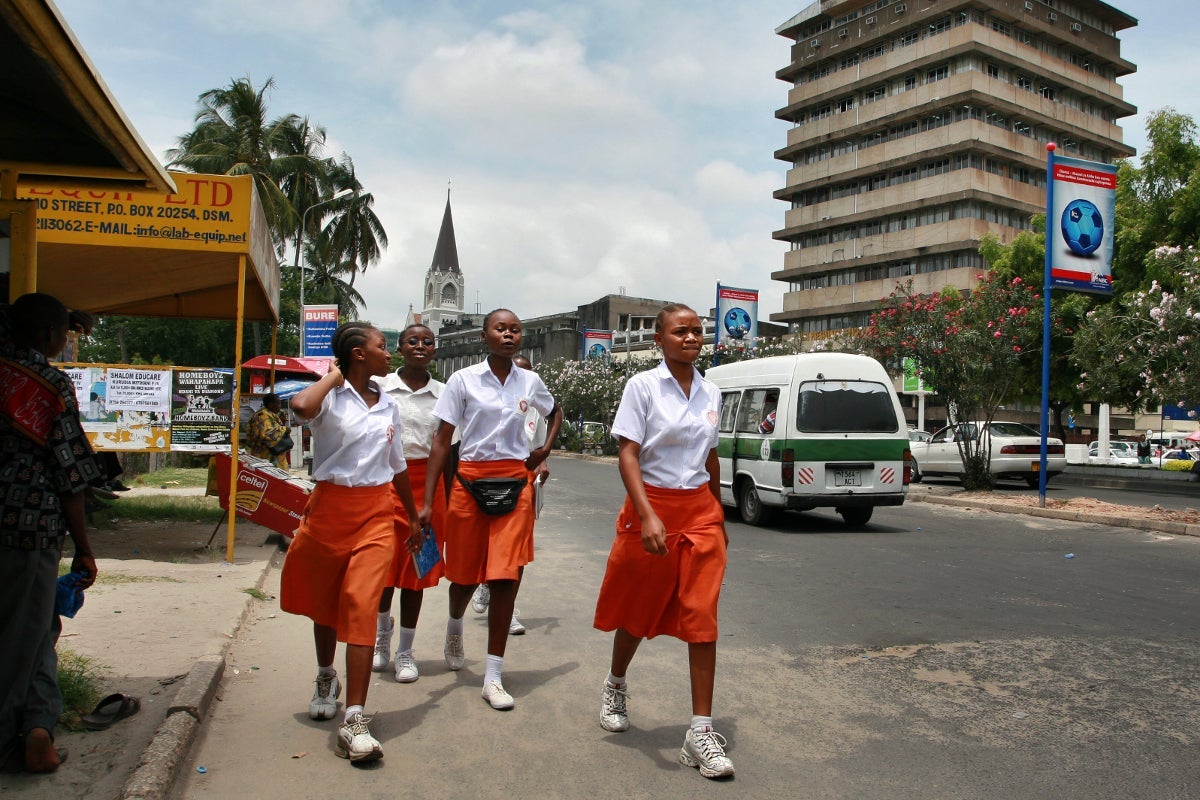Identifying unmet health needs for adolescents in sub-Saharan Africa

January 27, 2020—Adolescents make up 23% of sub-Saharan Africa’s population, but understanding and meeting their unique health needs has long been a neglected area. A new series of papers from Harvard T.H. Chan School of Public Health and the Africa Research Implementation Science and Education (ARISE) Network aims to help fill that gap. The work presents the results from surveys of 8,075 adolescents in seven countries, identifying behaviors and risk factors related to nutrition, mental health, and sexual and reproductive health.
“Investing in adolescents has significant benefits for their health now and in the future, and for their ability to raise healthy families,” said Wafaie Fawzi, Richard Saltonstall Professor of Population Sciences and Professor of Nutrition, Epidemiology, and Global Health. He noted that behaviors established at this stage of life can shape adult behaviors and long-term health outcomes. “Our research highlights the need for longitudinal and intervention studies that can provide evidence on effective strategies for improving adolescents’ health and well-being.”
The papers were published online January 2020 in a special issue of Tropical Medicine and International Health.
For the project, researchers conducted community-based surveys of adolescents ages 10-19 in Burkina Faso, Eswatini, Ethiopia, Ghana, Nigeria, Tanzania, and Uganda between July 2015 and December 2017. While adolescent studies typically focus on in-school populations, the researchers also included adolescents who did not attend school. This allowed them to tease out important differences in risk behaviors and health outcomes between the two groups.
For example, out-of-school adolescents were more likely to report ever having had sexual intercourse, and less likely to have used a condom the most recent time they had sex, or to have visited a primary care clinic, than those in school.
Overall, the researchers found that poor diet, inadequate physical activity, violence, and risky sexual behavior are important risk factors for adolescents in the communities they studied.
Among the key findings that adolescents reported were moderate to high rates of:
- Inadequate fruit consumption (57–63%) and vegetable consumption (38–44%);
- Low physical activity (82–90%);
- Unprotected last sex (40% for males, 46% for females);
- Bullying (17-23%) and physical fighting (12-35%).
The proportion of adolescents reporting alcohol, drug, or cigarette use was very small, with the exception of use of khat (a plant with leaves that provide a stimulant effect when chewed) in Ethiopia.
In most of the study communities, the researchers were able to tap into local research systems that were already tracking population demographic and health trends. The households they surveyed were used to answering questions, which helped make data collection run more smoothly, said Chelsey Canavan, a researcher in the Department of Global Health and Population. She said that the team hopes to return to the same populations for a future round of surveys.
The ARISE network was launched in 2014 by the School under the leadership of Fawzi and the Harvard-affiliated Africa Academy for Public Health . It currently has 21 member institutions from nine countries in sub-Saharan Africa. Members convened last summer for a workshop on adolescent health.
Papers in the Tropical Medicine and International Health series included contributions from researchers at nine of those institutions in the seven host countries, in addition to Harvard Chan researchers Till Bärnighausen, Anne Marie Darling, Jocelyn Finlay, and Christopher Sudfeld.
Photo: iStock/Grigorev_Vladimir


